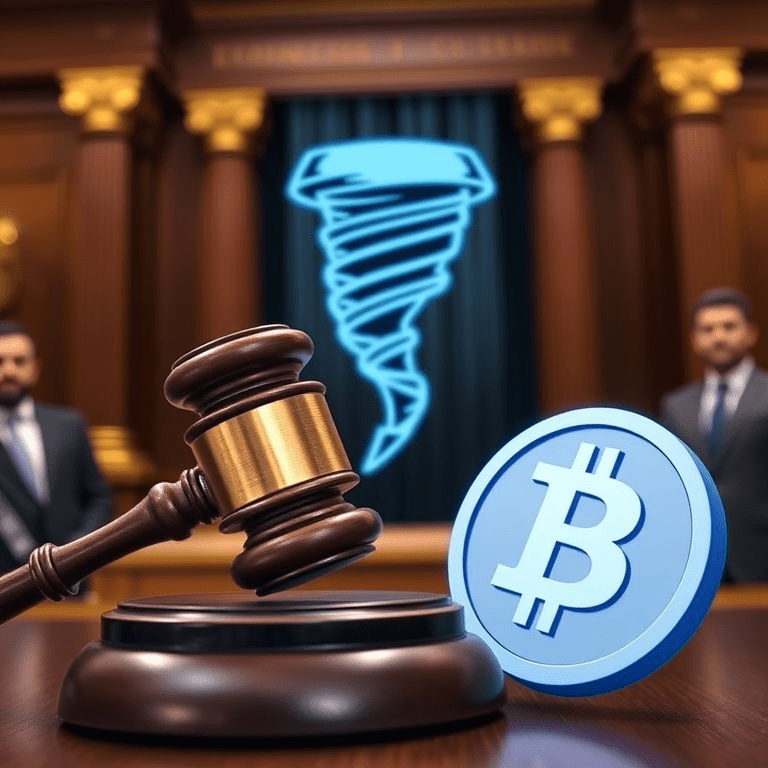Introduction
The cryptocurrency industry has once again found itself at the center of legal and regulatory controversy. On September 3, 2025, a U.S. federal jury delivered its verdict in one of the most high-profile crypto cases to date: the trial of Roman Storm, co-founder of the privacy-focused crypto mixing service Tornado Cash. The Tornado Cash verdict resulted in Storm being found guilty of operating an unlicensed money-transmitting business, sparking immediate and intense debate about the future of financial privacy, decentralized finance (DeFi), and the line between individual developer responsibility and government regulation.
The decision has sent shockwaves across the digital asset space, not only because of its implications for Storm personally, but because of what it may mean for the open-source community, privacy advocates, regulators, and the wider cryptocurrency ecosystem.
Background: What is Tornado Cash?
Tornado Cash was launched in 2019 as a decentralized, non-custodial Ethereum-based protocol designed to improve transaction privacy. At its core, Tornado Cash uses smart contracts and zero-knowledge proofs to allow users to “mix” their cryptocurrency. Instead of sending Ethereum or ERC-20 tokens directly from wallet A to wallet B, users deposit funds into a Tornado Cash pool, from which withdrawals are made to a different wallet address. This process obscures the transaction trail, making it extremely difficult for blockchain analytics firms or regulators to trace.
Supporters praised Tornado Cash as a breakthrough in protecting financial privacy—a digital equivalent of cash transactions. Critics, however, argued that the tool was frequently exploited by hackers and criminal organizations, including high-profile incidents such as the Lazarus Group of North Korea allegedly laundering stolen funds through the platform.
In August 2022, the U.S. Treasury Department’s Office of Foreign Assets Control (OFAC) sanctioned Tornado Cash, effectively banning U.S. citizens and entities from using the service. That sanction set the stage for subsequent arrests and trials, culminating in Storm’s case.
The Case Against Roman Storm
Federal prosecutors accused Storm of knowingly operating Tornado Cash as an unlicensed money-transmitting business. According to the Department of Justice (DOJ), Tornado Cash facilitated billions of dollars in illicit transactions, including proceeds from ransomware attacks, hacks, and state-sponsored cybercrime.
Key allegations included:
- Failure to Register – Storm and his associates allegedly failed to register Tornado Cash as a money services business with the Financial Crimes Enforcement Network (FinCEN).
- Knowledge of Illicit Use – Prosecutors claimed Storm was aware that Tornado Cash was being used for illegal purposes but continued to develop and promote the platform.
- No Adequate Controls – Unlike regulated crypto exchanges, Tornado Cash did not implement Know Your Customer (KYC) or Anti-Money Laundering (AML) measures.
Storm’s defense argued that Tornado Cash was a decentralized, open-source project, and that he could not be held liable for how third parties used the technology. His lawyers emphasized that developers cannot control or police immutable smart contracts once deployed on Ethereum.
The Tornado Cash Verdict
After weeks of testimony, the jury sided with the prosecution. On September 3, 2025, Roman Storm was found guilty of operating an unlicensed money-transmitting business. While sentencing has not yet been scheduled, legal experts suggest that Storm could face several years in prison and significant financial penalties.
The verdict is being hailed by U.S. regulators as a victory in the fight against crypto-enabled crime. However, privacy advocates, open-source developers, and members of the DeFi community see it as a dangerous precedent that could stifle innovation and criminalize coding.
Reactions from the Crypto Community
The Tornado Cash verdict triggered a swift and divided response:
- Privacy Advocates: Groups such as the Electronic Frontier Foundation (EFF) and Coin Center criticized the decision, warning that it equates publishing code with criminal activity. They argue this undermines free speech rights, given that code is constitutionally protected in the United States.
- Regulators: U.S. Treasury officials applauded the ruling, stating that services like Tornado Cash cannot operate outside the law and facilitate billions in illicit finance.
- Developers: Open-source developers across Web3 platforms expressed concern that they could now be targeted if their software is misused, even without direct involvement.
- Market Impact: Ethereum and other major cryptocurrencies experienced short-term volatility as traders digested the news. ETH dropped briefly by 3% but stabilized within 24 hours.
Broader Implications for Crypto Regulation
The Tornado Cash verdict is more than a single case—it represents a pivotal moment in the ongoing tug-of-war between innovation and regulation. Several key implications arise:
- Open-Source Liability
Developers of decentralized apps (dApps) and smart contracts may now face increased legal scrutiny. The question of whether writing and deploying code can constitute “running a business” will shape future cases. - DeFi Oversight
Decentralized finance platforms, especially those with privacy features, are likely to come under tighter regulatory pressure. Authorities may demand that DeFi protocols integrate compliance mechanisms or risk criminal liability. - Impact on Privacy Tools
Other privacy-focused projects, such as mixers, privacy wallets, and zero-knowledge proof technologies, may face restrictions or choose to relocate outside of U.S. jurisdiction. - Global Ripple Effect
The U.S. often sets the tone for international financial regulation. Countries in Europe and Asia may adopt similar enforcement actions against privacy protocols.
Expert Commentary
Jake Chervinsky, Chief Legal Officer at Variant Fund, noted:
“This verdict sets a chilling precedent. If developers can be prosecuted for the actions of anonymous users, we risk criminalizing innovation itself. At the same time, it reflects the government’s growing unwillingness to tolerate unregulated financial tools.”
Sheila Warren, CEO of the Crypto Council for Innovation, added:
“This case highlights the urgent need for clear regulatory frameworks. Ambiguity only harms innovators while doing little to deter bad actors.”
The Road Ahead for Roman Storm and Tornado Cash
Storm’s legal team is expected to appeal the decision, potentially taking the case to higher courts. Legal analysts suggest the outcome could eventually reach the U.S. Supreme Court, where constitutional questions about free speech and code publication may be debated.
Meanwhile, Tornado Cash itself continues to exist on Ethereum as an autonomous set of smart contracts. Even with sanctions and legal battles, the protocol cannot be easily shut down, raising further questions about how regulators enforce laws against decentralized technologies.
Conclusion
The Tornado Cash verdict marks a defining moment in the crypto industry’s legal history. Roman Storm’s conviction underscores the tension between innovation and regulation, privacy and security, decentralization and government oversight.
As the debate intensifies, one thing is clear: the outcome of this case will shape not only the future of Tornado Cash but also the trajectory of the entire DeFi and open-source ecosystem.







